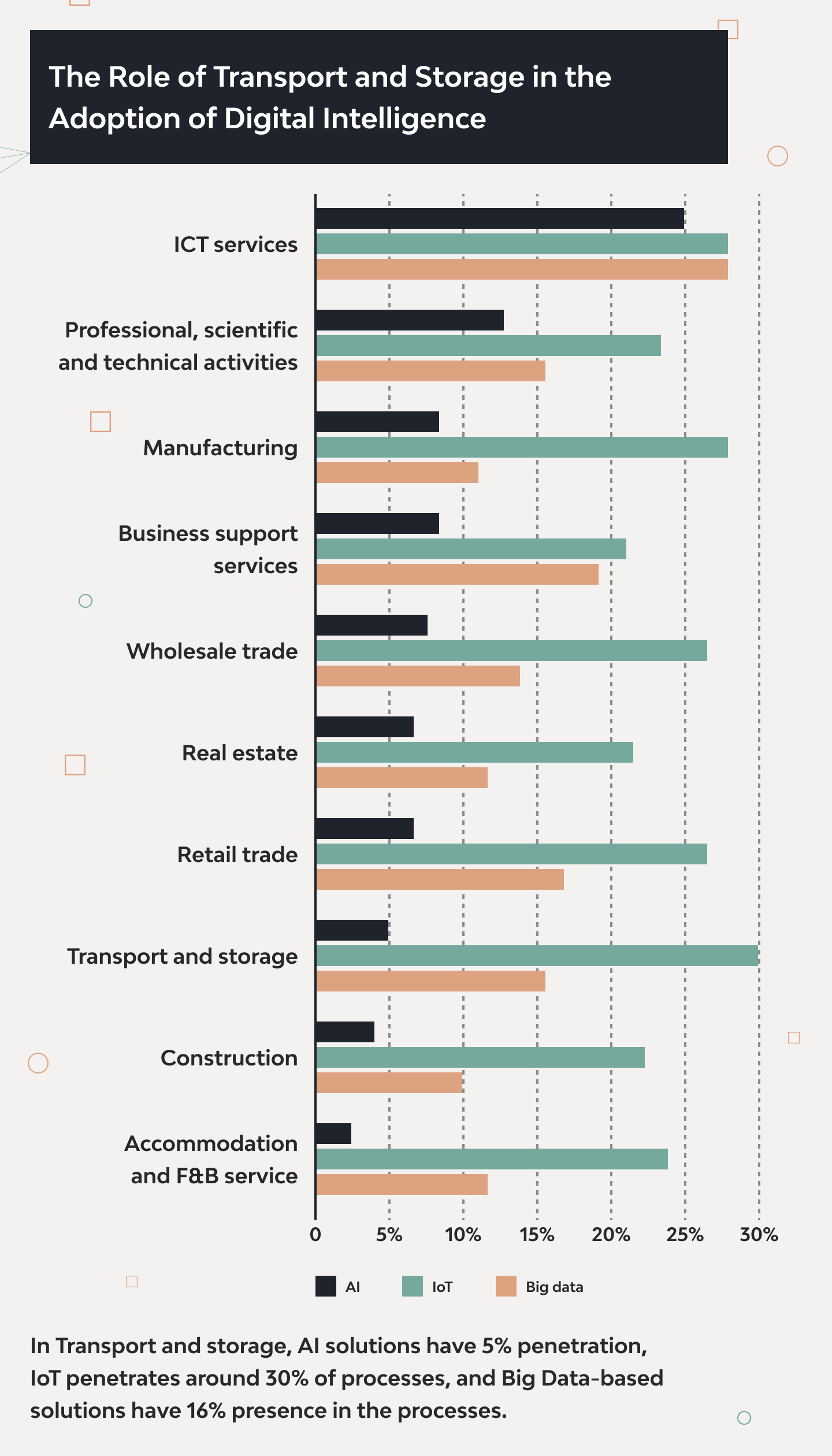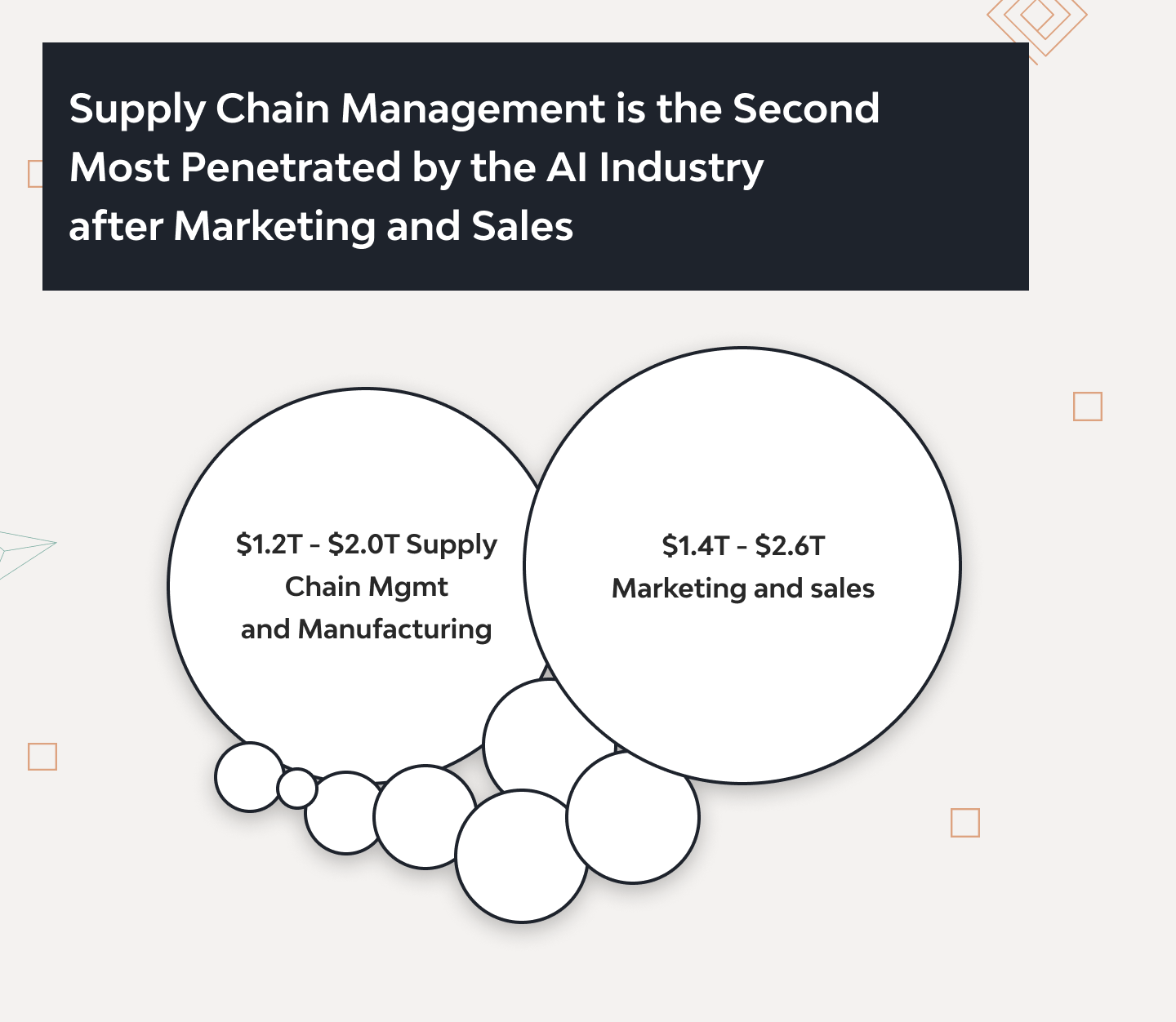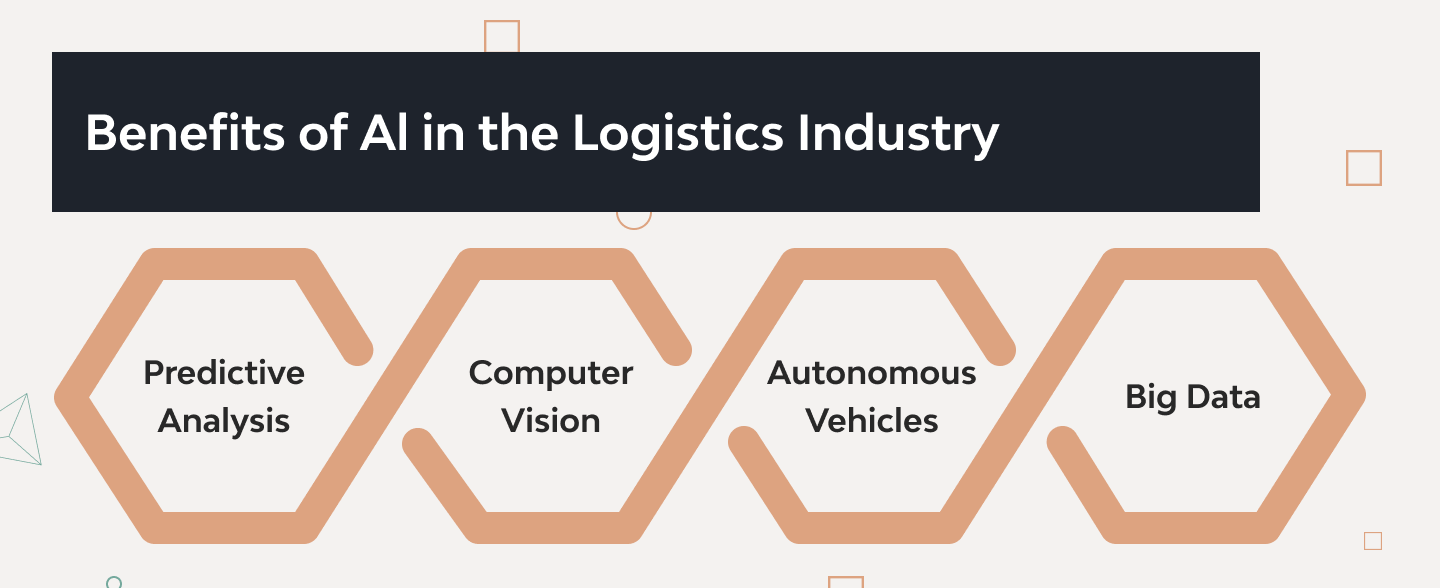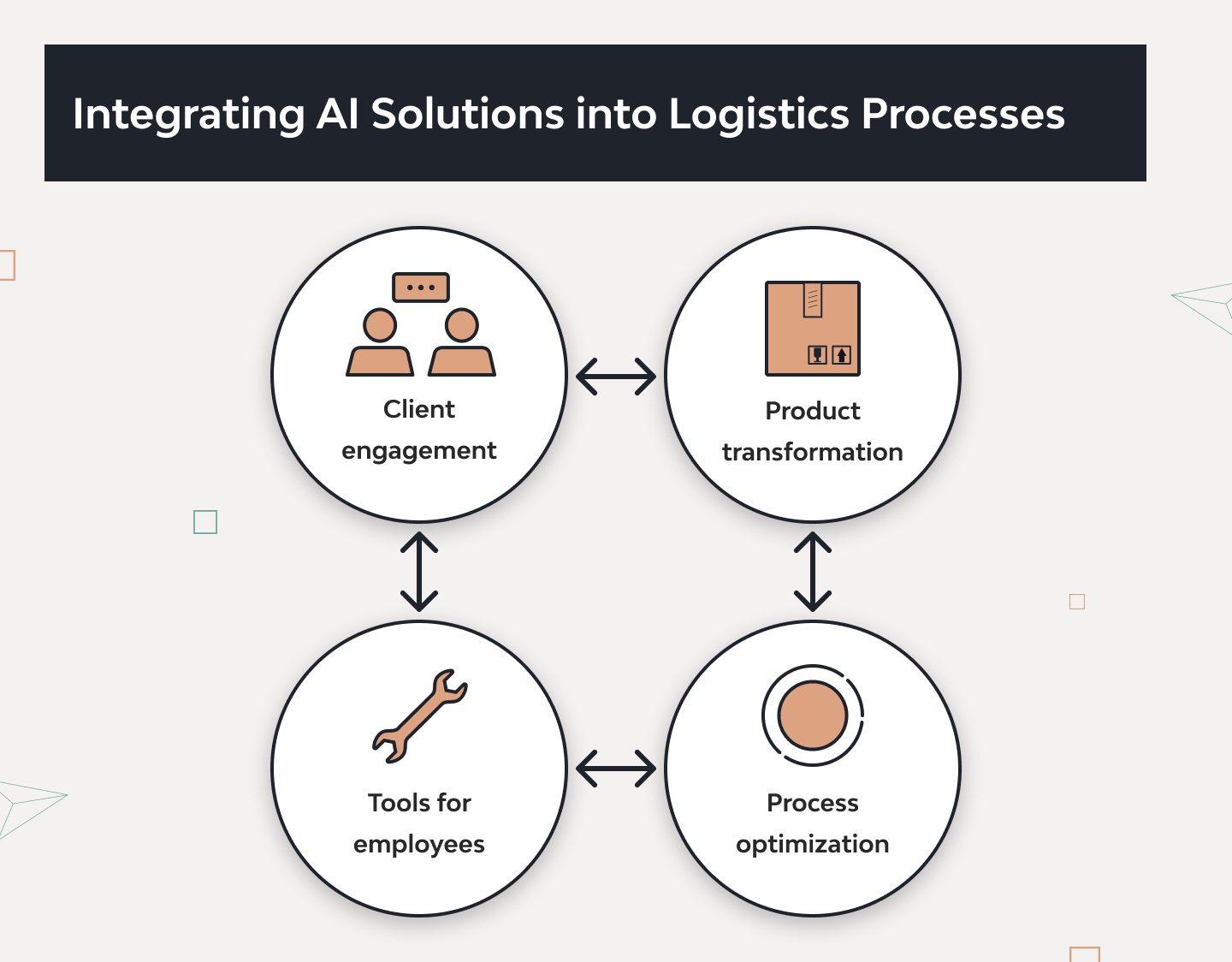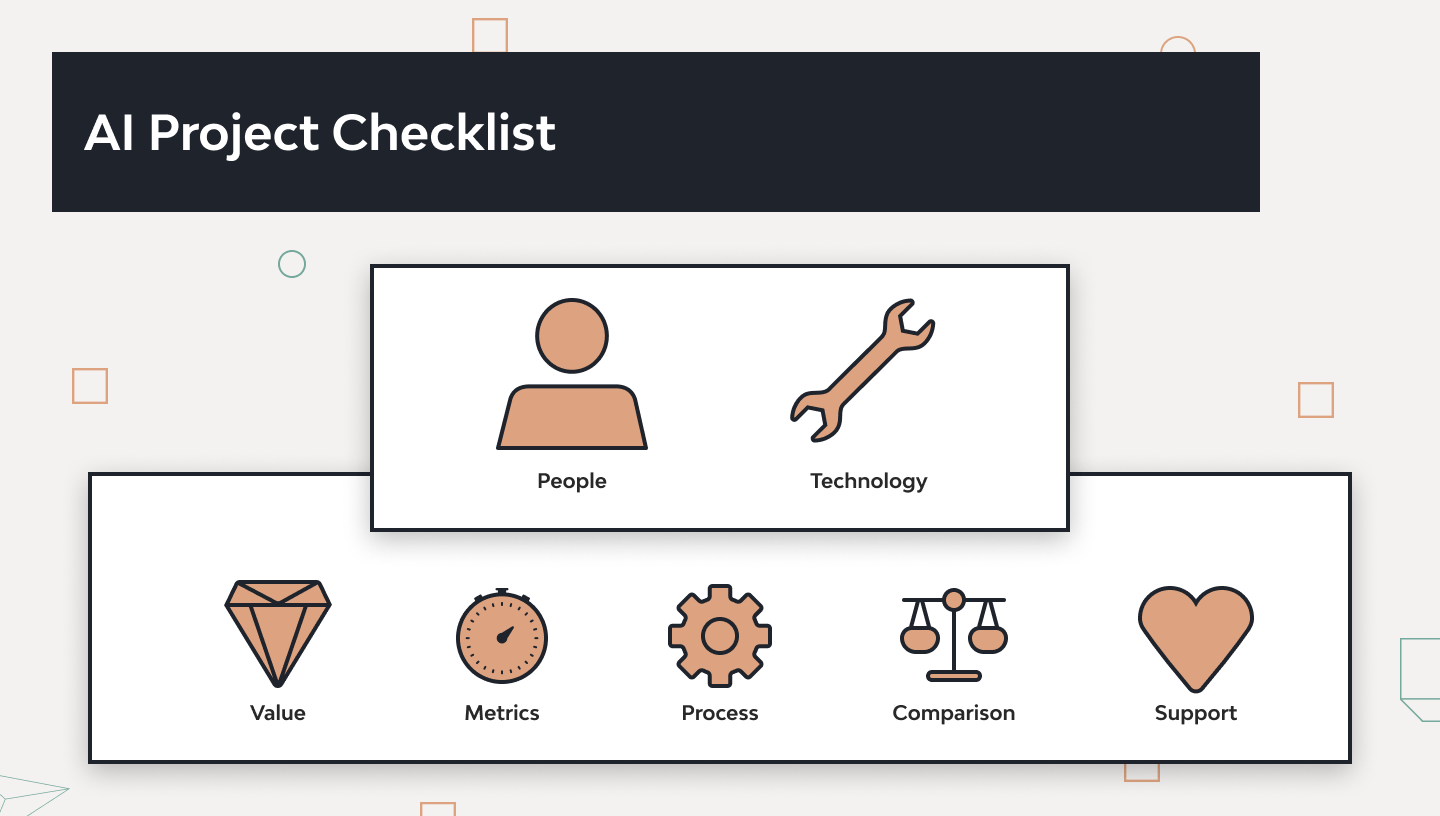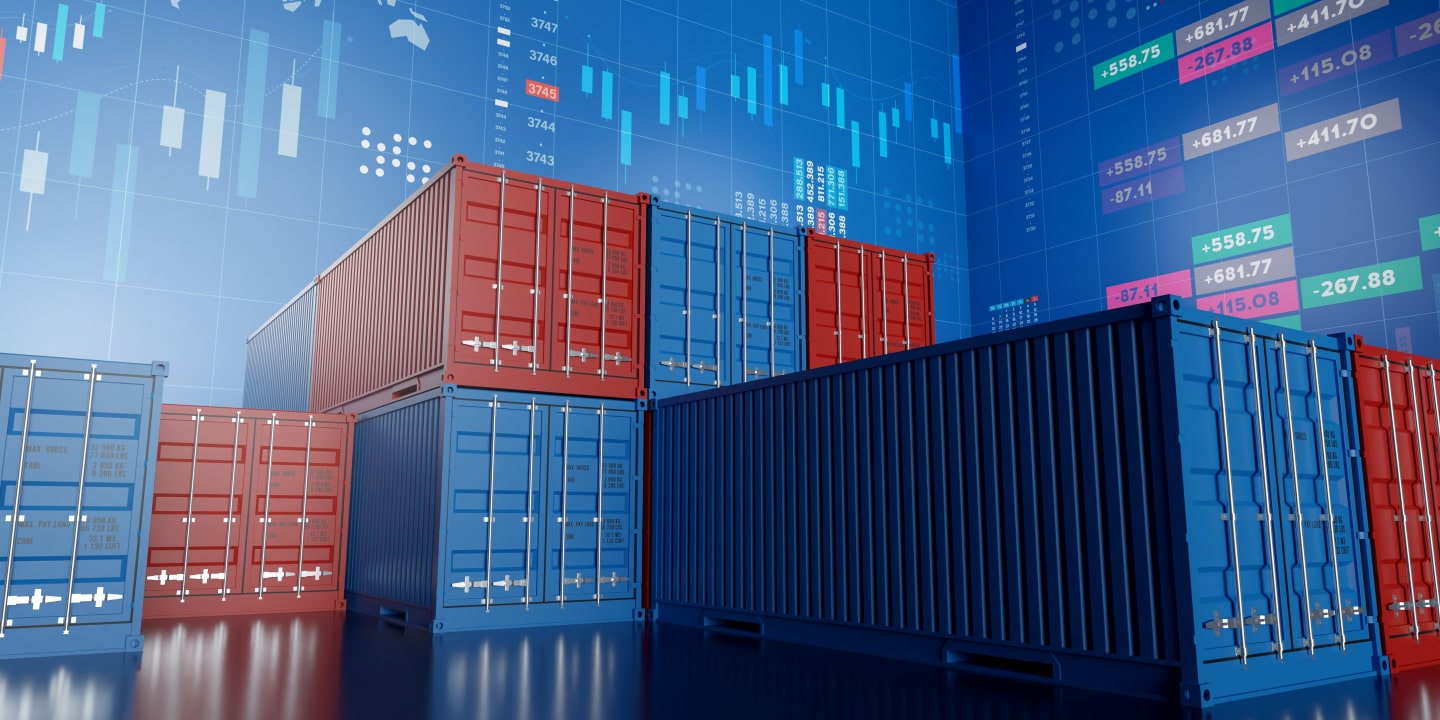How AI Is Transforming Logistics Management with Software Solutions
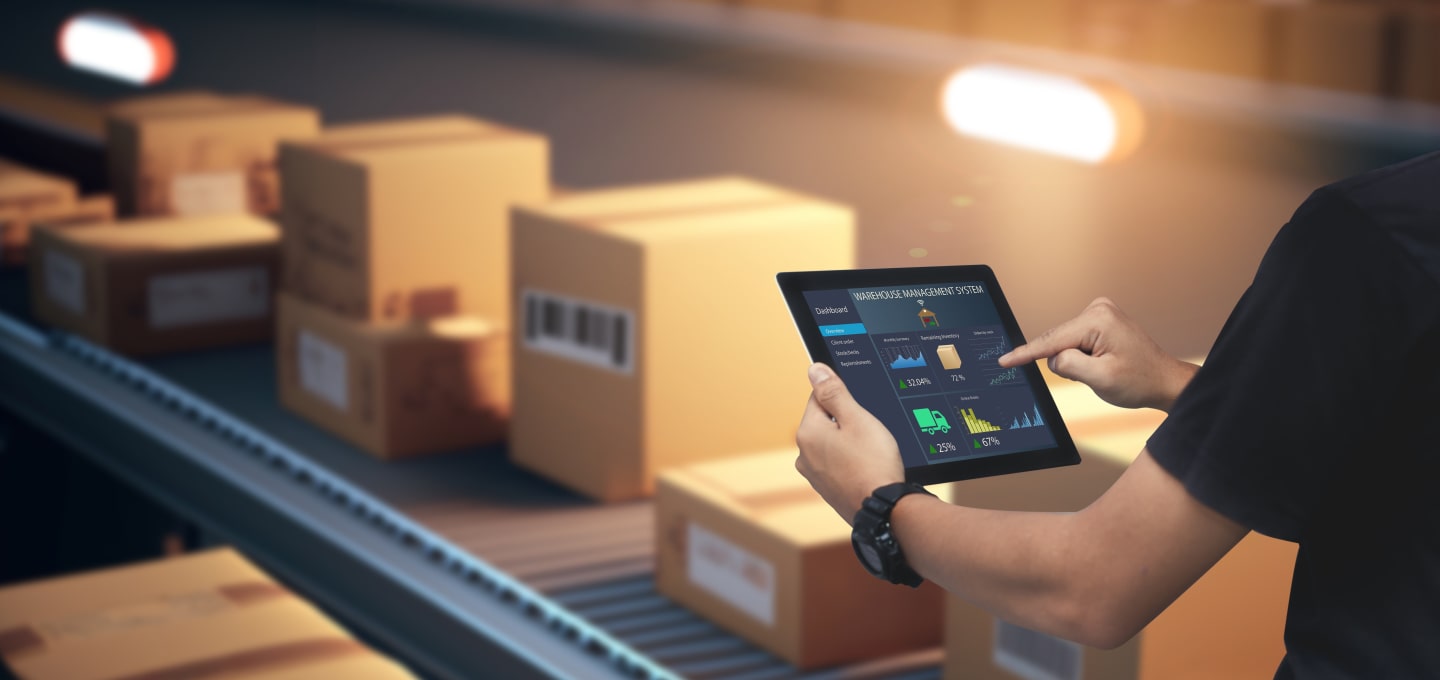
Ever since the emergence of artificial intelligence, it has been disrupting whole industries. Such solutions provide businesses with both tools to optimize workflows and challenges to adapt it to the company’s processes successfully. Among examples of such change is the growing demand for AI in logistics, since this industry has many cases of successful implementation of the technology.
Still, many businesses refrain from using AI for logistics due to little understanding of this technology, confusion in terms of how to apply it, or lack of tools to incorporate such solutions into their existing processes.
Our portfolio with AI/ML development solutions allow us to recognize the potential that comes from combining the technologies and logistics operations. Despite the complexity that the incorporation of artificial intelligence in processes can mean, there are many launch-ready solutions a business can adopt without developing it from scratch. This way, a business can introduce AI software to optimize existing workflows in the supply chain without the need for process reorganization or heavy investments.
As an industry, logistics has a huge space for further digitalization, and progressive solutions seem inaccessible to anyone but industry giants. According to The Economist’s report of 2020, this is one of the industries among the least penetrated by AI. Nonetheless, using pre-developed software to improve processes is easier than it seems. Let’s discuss the capabilities of artificial intelligence in logistics and how it can be used by businesses of different scales.
Even though very few companies can allow automating entire processes, AI solutions are accessible to smaller transportation businesses to improve customer experience, make supply and demand predictions, and optimize transportation routes. So, let’s see how to approach the adoption of AI solutions based on the business’s scale, objective, and budget and use its potential to the fullest. Making AI integration a digital transformation priority allows businesses of all sizes to harness advanced technologies, enhance operational efficiency, and stay competitive in an evolving market landscape
Artificial Intelligence in Transportation Market Size
This technology started gaining special popularity after the break of the global pandemic in 2020. The disruptions pushed transportation companies to look for faster ways to reduce human involvement by integrating AI in logistics and seeing its results further on. According to McKinsey’s research of 2021, the implementation of artificial intelligence in processes helped the pioneering companies, like DHL, Amazon, and Maersk we are about to discuss, to reduce logistic costs by 15%, improve their inventory levels by 35%, and provide 65% better service for their customers.
Early adopters of this technology see improvements in building models to forecast demand, business planning, dynamic planning optimization, and workflow robotization. An earlier McKinsey research indicated that companies that integrate AI in logistics management will generate $1.3-$2 trillion annually in their economic value.
This business area is the second after marketing and sales where AI bets the broadest implementation and increases processes. There are many applications of AI in logistics that impact operations in the company on every level. It enhances planning and analytics, operates warehouse robots and autonomous things, streamlines back-office processes, and accelerates sales and marketing, too.
However, logistics management transformation with AI has more potential than accomplishments at the moment, since businesses are still to adopt it due to challenges in its implementation. Among the challenges that businesses face are high costs, data privacy and security considerations, and dependency on the data used.
The Role of AI in Logistics Management
AI gains more recognition in businesses every year. As we briefly mentioned before, it improves many realms of this business and its operations, so now let’s take a closer look at the role of artificial intelligence in logistics and its contributions to transportation business development.
Automation of manual processes. Adopting AI in the logistics sector allows for automating processes and reducing the human involvement necessary to run supply chain processes. Implementing this technology helps to increase accuracy in operation and improve overall productivity at a lower cost. Apart from mechanical processes, incorporating AI in data analysis and processing makes decision-making in business faster and better. For example, Amazon has robotized warehouses equipped with an intricate system of sensors that minimize human involvement.
Improvement and personalization of customer service. Using AI in logistics management makes space for more customer satisfaction provided by shorter response time and more accurate information provided to the clients. Incorporating chatbots helps to process more customer requests and inquiries, as well as personalize the experience for them without human involvement.
Better efficiency and accuracy in processes. Businesses can delegate demand forecasting and supply planning to artificial intelligence in logistics as well as get instant analytics on dynamic pricing and route optimization. The capabilities of this technology allow for the processing of massive amounts of data in real-time hence streamlining decision-making organization-wide. It adds up to the transparency of supply chain operations and minimizes delays.
Accurate risk management. It is one of the brightest examples of AI in logistics. Using AI in transportation operations and management can provide predictive insights regarding potential problems and demand thus outlining possible risks and mitigating them. It models scenarios based on the available statistical and historical analysis.
Improved data quality. AI capacities, namely machine learning and natural language programming help to accurately obtain and systemize information that the organization collects continuously. In this process, NLP recognizes and registers commonly used terms in the process and ML helps to establish connections between them, create content, and learn based on these data.
Enhanced autonomous technology. AI in logistics and supply chain powers autonomous tools and vehicles that allow for faster delivery of goods at lower costs.
How AI Can Transform Logistics and Supply Chain Management
This industry is still heavily reliant on processes and operations that are difficult to digitalize. The largest players, like Amazon and DHL, can afford the total or major robotization of entire process lifecycles. However, it does not mean AI capabilities are inaccessible to growing businesses. Solutions targeted at improving existing processes with this technology can fit businesses of any scale using AI, ML, and NLP. Let’s see what areas it can penetrate in logistics.
1. Automated Interaction with Customers
Transportation and logistics companies can improve and personalize the experience for their clients, at the order, transportation, and delivery stages. Creating chatbots for handling inquiries can optimize human input in communicating with clients without compromising the quality of service the latter will get. This way, possible or current clients can resolve their issues or inquire about the status of their package with no involvement of human service representatives, which will minimize the workload of entire departments.
Real Examples
Maersk introduced NLP- and ML-powered solutions to their processes on the customer service end. The company created a virtual assistant app named Captain Peter. It’s there to help customers with their inquiries in real time and propose optimal routes for shipping their packages.
2. Smart Transportation and Route Optimization
Logistic companies take time and effort to build optimal transportation routes taking to account all the possible variables. Plus, many conditions on the route may change, which demands constant monitoring and real-time adjustments. Using AI in this domain helps a lot with route optimization since it can access real-time data and introduce corrections in the route immediately.
AI-assisted route optimization helps reduce expenses on transportation as well as shorten the delivery time thus improving customer experience with the company.
Real Examples
DHL is one of the businesses that showcases using AI for that. With the help of the Resilience360 solution, the company monitors all the possible disruptions to its supply chain by processing data from 8 million social media and online posts. Their NLP and ML solutions scan relevant online discussions and comments. By analyzing these vast amounts of data, the company can predict shortages, prevent problems, and check the status of its suppliers.
3. Predictive Maintenance and Asset Tracking
Predictive, or condition-based, maintenance is an AI solution that collects data from sensors and hardware in the warehouse and analyzes it. Systems like that predict possible problems and suggest their solutions based on the received data. This way, a business can both save on human resources needed for warehouse maintenance and prevent any downtime in the supply chain.
Modernized warehouses with more resources are equipped with machinery arrays that store and move inventory around with the help of a system of sensors and robotized hardware. Such complex automation systems are expensive to install. However, when maintained properly they will ensure the smooth operation of the whole process lifecycles.
Real Examples
Maersk transformed its back office processes with AI. They created a whole ecosystem for managing and tracking packages with the help of TradeLens. It is a blockchain-based platform for forecasting demands and optimizing their shipping network.
4. AI’s Impact on Supply Chain Collaboration
One of the key impacts of AI on supply chain collaboration is the ability to enhance data analytics and insights. AI algorithms can analyze vast amounts of supply chain data in real-time, identifying patterns, trends, and anomalies that humans may overlook. This data-driven approach enables businesses to make informed decisions, optimize inventory levels, anticipate demand fluctuations, and improve overall supply chain performance. Furthermore, the integration of artificial intelligence in decision-making processes further augments the efficiency and agility of supply chain management.
Collaboration platforms and tools facilitate seamless communication and coordination across supply chain partners. These platforms enable real-time sharing of information, fostering transparency and trust among stakeholders. AI-driven chatbots and virtual assistants can automate routine communication tasks, such as order status inquiries or scheduling updates, improving responsiveness and efficiency. These data-based solutions allow for AI in logistics and supply chains for businesses of different scales, as it does not require heavy investments in the robotization of the processes.
5. Automated Warehousing and Transportation
Adopting AI solutions for warehouse management allows to simplify this job for human workers. In this case, warehouse robots are there to carry objects around while the AI makes sure the process goes correctly: the robot handles the right inventory and moves it to the right location. Plus, businesses can track items at any place in the supply chain (packing, shipping, and pickup) and identify possible errors in real-time.
Additionally, AI in logistics and supply chain allows for optimizing visual detection of items and detection of damage. AI-powered visual inspection of goods on the conveyor line can prevent safety hazards and help the business save a considerable amount of money. Thus, adopting AI solutions for warehouse management can both reduce expenses and improve its safety and efficiency.
Real Examples
One of the illustrative use cases of AI in logistics is a product of collaboration between UPS and TuSimple, an autonomous vehicle startup. Their vehicles feature an interconnected system of cameras and radar systems that screen the environment. Coupled with AI, these trucks can make data-based decisions throughout the transportation of goods thus optimizing fuel consumption, delivery time, and the overall efficiency of operations.
A logistics giant FedEx has successfully incorporated AI-driven route optimization and package tracking. At this point, the enterprise invests in the robotization of goods delivery with driverless vehicles, robots, and drones to reduce operational costs.
Adopting AI in the Logistics Business
When you see the advantages of using AI in your logistics company, incorporating your processes will need comprehensive preparation. From deciding on the operation to optimize to training employees to use the software in daily tasks, here are the things to consider and plan in your work with AI.
Locating Major Issues
One thing to do before incorporating AI in transportation and logistics is the identification of gaps in the existing supply chain. Businesses might look for such gaps in supply chain and warehouse management or in equipment maintenance. When the gap is identified, a business can close it with an AI solution.
Compare and Choose
There is no one-size-fits-all AI solution in logistics. To find the one that will suit best the needs of a particular business, it is necessary to take time and study the capabilities of the solutions and make a reality check in terms of how it fits the existing processes in the organization. Ideally, the solution must complement and enhance existing processes rather than call for total re-organization thereof.
Plan AI Implementation
Successful implementation of artificial intelligence in logistics management requires planning. A comprehensive plan for adopting such a solution will include its budget, timing, and onboarding roadmap. Plus, it is best to set the metrics to measure the success of AI implementation in a particular business. With a clear vision, adopting this technology will be harmless for the processes and painless for the staff.
Start Small, Grow
As game-changing as it is, AI solutions cannot turn processes hands-free overnight. If your business only starts to adopt this technology, it is better to try it on a scale of a project. Once it works and is planned and the retrospective analysis of its implementation provides insights for future improvements, it will be easier for the company to expand its application in its processes.
Train and Support Staff
Businesses that are about to introduce AI to their processes need to consider onboarding and support for their teams. The technology may be new to the employees who are about to deal with it daily, which is why training the personnel is a paramount part of a successful implementation of technology.
Challenges to Implementing AI in Logistics Management
Promising as they are, AI solutions still pose certain challenges for businesses. The most evident are staff training, operational costs, and the quality of data used.
Training costs
Adopting new technology will always mean learning. To successfully integrate an optimal solution into processes a business has to plan and budget employees training. Commonly, reaping the benefits of AI in processes comes after a tight collaboration between the AI provider and the business to onboard the employees.
Data quality
The results of using such technology depend greatly on the data sets used in operations. Businesses have the challenge to ensure their quality before relying on the results.
Human jobs shortage
Naturally, the more functions AI can take on, the fewer jobs people will have. Yet, even with the shortage of human-involving manual jobs, adopting artificial intelligence will mean higher demand for qualified professionals to manage AI operations.
Operational costs
At its core, AI is an intricate system of multiple components that demand skilled professionals to operate it. Switching to solutions powered by natural language processing across the machine learning travel industry requires thorough onboarding and a well-planned maintenance budget.
Conclusion
Based on the buzz around new AI technologies and the results they show today, the markets will continue to gravitate towards such digital transformation. As the second most penetrated AI industry, logistics and transportation businesses will work closely and develop this technology further on.
AI solutions are scalable and adaptable, so they can improve and optimize processes even for businesses that cannot afford robotization. Many data-based and NLP solutions are suitable for predictive analysis, route optimization, and customer service. Plus, such solutions are budget-friendly, as they save onboarding and human hours without disrupting existing processes.
If you are looking for a custom solution for your business, be sure to reach out to experts in Python for AI here at Django Stars. Design your transformation roadmap and choose the optimal route to it.
- What are the benefits of AI in logistics?
- Digital solutions like AI have close to unlimited potential to benefit a business in logistics. It accelerates operations, provides data-driven analysis, and automates physical processes. A complex of such solutions can ensure faster transportation at a reduced cost and better decision-making data
- How is AI being used in logistics?
- In this industry, AI capabilities serve to robotize warehousing and transportation operations, predict supply chain disruptions, optimize routes and transportation costs, as well as provide improved personalized customer experience.
- Which companies use AI in the supply chain?
- Global transportation companies that already adopted AI in their processes enterprise-wide are DHL, UPS, FedEx, and Maersk.
- How much does it cost to implement AI in logistics management?
- There is no universal pricing for AI incorporation in the company processes. The cost of its implementation will depend on the company's size, its goals, and existing processes.

